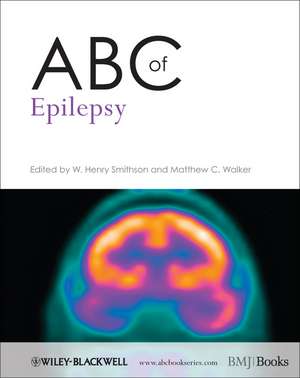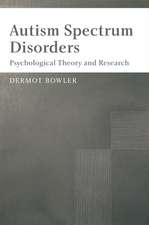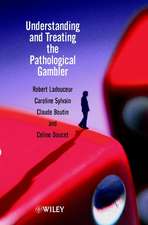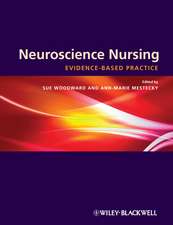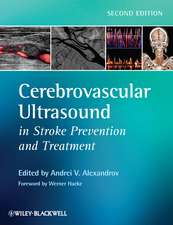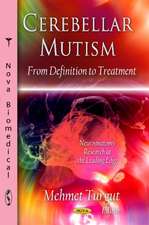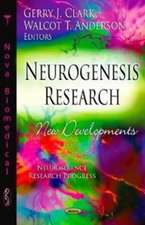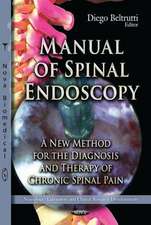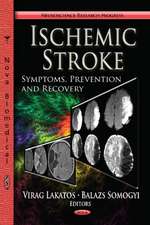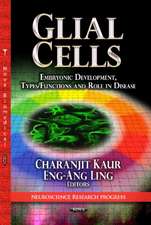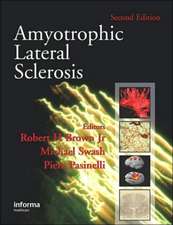ABC of Epilepsy: ABC Series
Autor W Smithsonen Limba Engleză Paperback – 19 feb 2012
Din seria ABC Series
- 5%
 Preț: 269.43 lei
Preț: 269.43 lei - 5%
 Preț: 299.32 lei
Preț: 299.32 lei - 5%
 Preț: 323.91 lei
Preț: 323.91 lei - 5%
 Preț: 238.73 lei
Preț: 238.73 lei - 5%
 Preț: 331.76 lei
Preț: 331.76 lei - 5%
 Preț: 302.75 lei
Preț: 302.75 lei - 5%
 Preț: 292.75 lei
Preț: 292.75 lei - 5%
 Preț: 255.53 lei
Preț: 255.53 lei - 5%
 Preț: 344.46 lei
Preț: 344.46 lei - 5%
 Preț: 293.04 lei
Preț: 293.04 lei - 5%
 Preț: 243.84 lei
Preț: 243.84 lei - 5%
 Preț: 279.69 lei
Preț: 279.69 lei - 5%
 Preț: 215.90 lei
Preț: 215.90 lei - 5%
 Preț: 209.08 lei
Preț: 209.08 lei - 5%
 Preț: 285.96 lei
Preț: 285.96 lei - 5%
 Preț: 293.83 lei
Preț: 293.83 lei - 5%
 Preț: 223.76 lei
Preț: 223.76 lei - 5%
 Preț: 235.28 lei
Preț: 235.28 lei - 5%
 Preț: 224.79 lei
Preț: 224.79 lei - 5%
 Preț: 296.16 lei
Preț: 296.16 lei - 5%
 Preț: 192.68 lei
Preț: 192.68 lei - 5%
 Preț: 241.25 lei
Preț: 241.25 lei - 5%
 Preț: 291.76 lei
Preț: 291.76 lei - 5%
 Preț: 214.65 lei
Preț: 214.65 lei - 5%
 Preț: 198.37 lei
Preț: 198.37 lei - 5%
 Preț: 218.17 lei
Preț: 218.17 lei - 5%
 Preț: 447.38 lei
Preț: 447.38 lei - 5%
 Preț: 255.39 lei
Preț: 255.39 lei - 5%
 Preț: 290.08 lei
Preț: 290.08 lei - 5%
 Preț: 270.17 lei
Preț: 270.17 lei - 5%
 Preț: 232.26 lei
Preț: 232.26 lei - 35%
 Preț: 148.17 lei
Preț: 148.17 lei - 33%
 Preț: 159.34 lei
Preț: 159.34 lei - 30%
 Preț: 255.80 lei
Preț: 255.80 lei - 38%
 Preț: 156.73 lei
Preț: 156.73 lei - 33%
 Preț: 158.37 lei
Preț: 158.37 lei - 35%
 Preț: 194.87 lei
Preț: 194.87 lei - 28%
 Preț: 282.92 lei
Preț: 282.92 lei - 34%
 Preț: 165.27 lei
Preț: 165.27 lei - 37%
 Preț: 138.13 lei
Preț: 138.13 lei - 35%
 Preț: 159.27 lei
Preț: 159.27 lei - 31%
 Preț: 247.63 lei
Preț: 247.63 lei - 28%
 Preț: 228.91 lei
Preț: 228.91 lei - 34%
 Preț: 195.94 lei
Preț: 195.94 lei - 32%
 Preț: 262.25 lei
Preț: 262.25 lei - 37%
 Preț: 162.70 lei
Preț: 162.70 lei - 34%
 Preț: 139.65 lei
Preț: 139.65 lei - 33%
 Preț: 204.48 lei
Preț: 204.48 lei - 34%
 Preț: 198.12 lei
Preț: 198.12 lei
Preț: 202.99 lei
Preț vechi: 242.18 lei
-16% Nou
Puncte Express: 304
Preț estimativ în valută:
38.84€ • 40.66$ • 32.14£
38.84€ • 40.66$ • 32.14£
Carte disponibilă
Livrare economică 15-29 martie
Preluare comenzi: 021 569.72.76
Specificații
ISBN-13: 9781444333985
ISBN-10: 1444333984
Pagini: 48
Ilustrații: Illustrations
Dimensiuni: 215 x 277 x 4 mm
Greutate: 0.18 kg
Editura: Wiley
Seria ABC Series
Locul publicării:Chichester, United Kingdom
ISBN-10: 1444333984
Pagini: 48
Ilustrații: Illustrations
Dimensiuni: 215 x 277 x 4 mm
Greutate: 0.18 kg
Editura: Wiley
Seria ABC Series
Locul publicării:Chichester, United Kingdom
Public țintă
GPs, primary health care professionals, practice nurses and specialist nursesCuprins
Notă biografică
W. Henry Smithson is a General Practitioner and Acting Head, Academic Unit of Primary Medical Care, Medical School, University of Sheffield Matthew C. Walker is Professor of Neurology, UCL Institute of Neurology, University College London and National Hospital for Neurology and Neurosurgery, London
Descriere
ABC of Epilepsy provides a practical guide for general practitioners, and all those working in primary care, on the diagnosis, treatment and management of epilepsy, and for the continued monitoring and long term support of what is still a relatively poorly understood neurological disorder.
